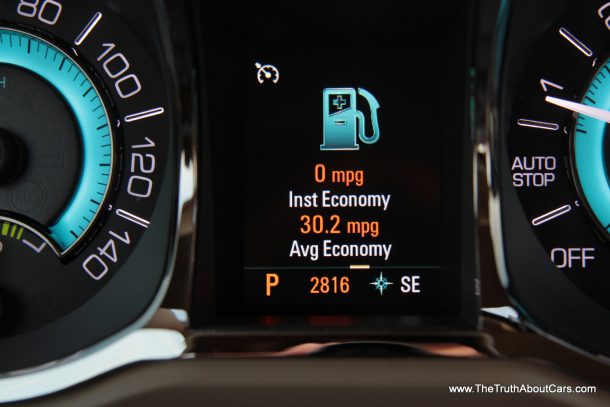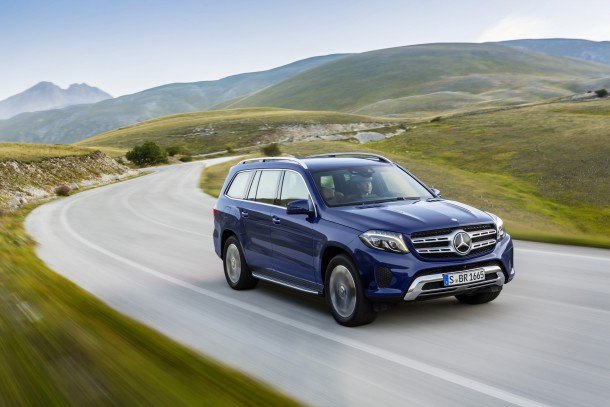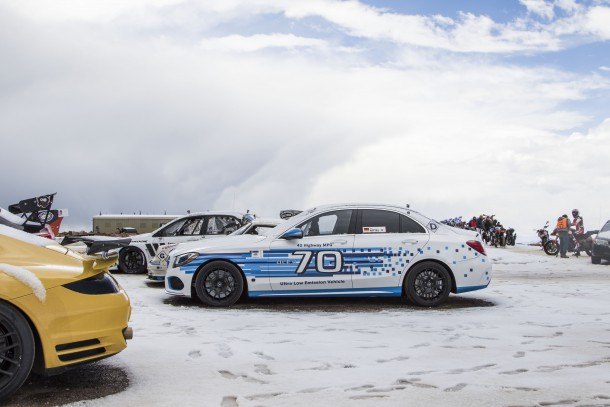#automakers
Ailing Motorcycle Industry Could Be Canary in Coal Mine for Automakers
If you think car enthusiasts are a dying breed, you should take a look at motorcyclists. The two-wheeled industry is in serious trouble. A total failure in marketing occurred over the past decade. New riders aren’t coming in fast enough to replace the glut of Baby Boomers rapidly aging out of the market, and there’s a looming paranoia that self-driving vehicles could push bikes off the road entirely.
In 2017, U.S. motorcycle sales were down 11 percent, and no company was hit harder than Harley-Davidson. The brand has the oldest consumer base and has repeatedly failed at recruiting younger riders. While it builds a fine product, it’s not one that appeals to millennials. This generational cohort proved hesitant to engage in motorcycling as a pastime — a situation not helped by having less disposable income than Generation X or the Boomers did at the same stage in their lives. Young women are also poised to start out-earning young men, and few brands have successfully tapped into the female demographic.
Premium is the New Regular: Automakers Want to Kill 87 Octane
The automotive industry wants to make 95 octane gasoline the new normal for the United States and it has taken its case to Washington. On Friday, Dan Nicholson, General Motors’ vice president of global propulsion systems, told the House Energy and Commerce Committee’s environment subcommittee that switching to 95 octane would align the U.S. with Europe and is one of the most affordable ways to boost fuel economy and lower greenhouse emissions.
Affordable for automakers, that is. Because there is no reason to think your local gas station will suddenly do you a solid and price 95 octane lower just because 87 is gone.
All About Imports: Chinese President Tries to Mellow Blossoming Trade War With U.S.
“Paramount Leader” and Chinese President Xi Jinping clearly hopes to defuse China’s trade situation with the United States after Donald Trump launched an aggressive tariff hike on metals last month. The People’s Republic has already filed a complaint with the World Trade Organization alleging Trump’s decision to impose additional duties of 25 percent on steel and 10 percent aluminum violate international trade rules.
It’s also requesting 60 days of consultations with the United States to resolve the dispute.
There’s also an olive branch on the table. Xi has promised to cut auto import taxes and improve intellectual property protections in a bid to bolster foreign exports and ease tensions before the U.S. and China enter into a full-blown trade war. Meanwhile, the White House is threatening to increase duties on $50 billion worth of Chinese goods in response to claims that China essentially bullies foreign companies to hand over technology in order to sell it inside the country.
Pence Meets With Automakers Annoyed by NAFTA Changes
The automotive industry is wary of any changes that might be made in regard to the North American Free Trade Agreement. Fortunately for them, little progress has been made during the last few months of negotiations. But that doesn’t create an assurance that changes aren’t still en route. So, manufacturers and suppliers have banded together via various trade groups to voice their opinion on how to best handle NAFTA.
Meanwhile, the Trump administration has attempted to make itself appear friendly to the automotive business. Continuing these efforts, Vice President Mike Pence has met with General Motors CEO Mary Barra, Fiat Chrysler’s Sergio Marchionne, Ford North America President Joe Hinrichs, and a handful of other top-tier auto executives.
Saying What's Popular: Suppliers Claim Automakers Are Overselling the Future of 'Mobility'
Suppliers have begun putting automotive companies on blast for overly ambitious mobility claims. While self-driving cars are definitely en route, manufacturers have ramped up their arrival time and omitted the necessary pit stops to win favor with investors or the general public. Meanwhile, parts suppliers have been frank on the matter — explaining they know when autonomous cars are really coming because they’ll be the ones providing the tidbits that make them work.
Don Walker, CEO of Magna International, one of the world’s largest OEM parts suppliers, suggests automakers may even be misleading their customers. “A full autonomous vehicle is a long way off for lots of reasons, because of legislation, class-action lawsuits, all the complexities and the costs associated with it,” the executive said.
Speaking Wednesday at the 2017 Center for Automotive Research Management Briefing Seminars, Walker also took umbrage with the popular claim that electric vehicles could comprise around 25 percent of the new market by 2025. Instead, he claims EVs will only account for 3 to 6 percent of the global market within that timeframe — a figure predominantly dependent on how swiftly the highly regulated Chinese market grows.
What Does an Automotive Press Association Do With $306,000 of Automaker Cash?
This week, Canada’s most vaunted automotive journalists are at the nation’s best known race track — Canadian Tire Motorsport Park, or Mosport if you’re over the age of 12 — putting the market’s newest vehicles through their paces in a series of tests to select the Canadian Car of the Year.
This year’s event is, on the surface, no different from prior years. However, there is something truly exceptional about the event, dubbed TestFest, for 2016.
The award for Canadian Car of the Year, no matter which automaker wins it, doesn’t matter in the least.
Toyota Climbs Ladder of Most Valuable Brands, Tesla Cracks the Top 100
Interbrand released its annual list of the world’s top 100 brands, a ranking that now contains an independent automaker.
While Toyota climbs one spot to the No. 5 position (the highest of all automakers), Tesla has muscled its way onto the field, slotting at No. 100. Volkswagen continues the brand value descent it began last year, falling from No. 35 to No. 40 and posting a value decline of 9 percent.
There’s grim news for GM, as none of its brands made the list this year.
Automakers Step Up Battle Against U.S. Fuel Economy Target
As low gas prices persist and electric vehicles fail to find the widespread traction once predicted by the Obama White House, automakers have supercharged their fight against the country’s lofty 2025 fuel economy target.
Fuel prices and the popularity of trucks and SUVs means the federal 54.5 mile per gallon target isn’t reasonable, automakers say. Continuing down the same road and pretending the landscape hasn’t changed? That’s a recipe for disaster, according to industry groups.
Automakers Could Face Huge Fines After Feds Boost Fuel Economy Penalties
Business is about to get much more expensive for automakers with thirsty fleets.
The penalties leveled by the National Highway Traffic Safety Administration against automakers who miss their annual corporate average fuel economy (CAFE) standards are about to go up in August. Way up.
Here's How Britain's Automakers Are Reacting to Brexit
The United Kingdom, through referendum, has decided to break off from Europe and go it alone. But what of all the auto manufacturers that produce vehicles in the island nation? And of their employees? And trade?
We won’t know the answers to those questions until the UK and European governments sort out how the two entities will work together in the future. For now, it’s business as usual. Though, thanks to Autocar, we at least have reactions from the big players in the UK’s automotive industry.
TTAC News Round-up: Infamous GM Engineer Speaks, You Only Get One With Dinner, and Hydrogen's Hedged Bet
The man in the middle of GM’s faulty ignition switch has finally spoken, and the word “mistake” came up at least twice.
That, does anyone have the number for Google, GM and Honda may join forces, and take a cab … after the break!
Heads of Automakers in US Meet In Washington, Discuss Safety, Recalls
Auto executives from nearly every major U.S. automaker met in Washington D.C. on Tuesday to discuss safety, recalls and technology with Secretary of Transportation Anthony Foxx, Automotive News reported.
Senior executives from 15 automakers, including General Motors’ CEO Mary Barra, Fiat Chrysler Automobiles CEO Sergio Marchionne, Volkswagen of America CEO Michael Horn and Nissan North America boss Jose Munoz, met to address Foxx’s concerns that “the public has lost faith in the auto industry’s commitment to safety,” according to a letter obtained by Automotive News.
The recent snowballing recall crises at GM, FCA and other automakers concerning Takata’s airbag inflators prompted the meeting, according to reports. A spokesman for the Transportation Department said the meeting was “very productive.”
It's Time For the Long-winded Press Release to Die
One thousand, six hundred and fifty-three words.
That may not sound like a lot. The reviews and features we publish at TTAC routinely go beyond that. Alex Dykes, when he really sweats the details, can easily reach 3,000 words in his reviews. Jack, when he isn’t even trying, will end up writing 1,600 words on a Matrix — just because. My reviews will easily eclipse the 2,000 word mark, even as I sit here complaining about not knowing what to say.
But 1,653 words equals approximately 8 minutes and 12 seconds of reading time, according to Read-o-Meter. That also may not seem like much, but the latest press release for the “all-new 2017 Mercedes-Benz GLS” is a massive time waster, even at its sub-10 minute read time.
Why? Because the only two things I learned from it were: Mercedes-Benz has renamed and slightly updated the GLS, and Mercedes-Benz writes press releases that are at least five times longer than they need to be.
Just How Bad Are the Automakers Taking a Beating in the Stock Market?
Markets around the world are down, down, down, down and down.
At the time of this writing, the Dow Jones Industrial Average is down roughly 650 points on Monday, which is more than 1,500 points off of where we were at the beginning of August. A lot of the run is fueled by fears that China is tapering off its growth ( or they’ve been making it up for a while) and that Europe is tinkering on the brink of sinking into another recession.
With Nrburgring Records Dead, Automakers Begin Pikes Peak Chest-Thumping
At the conclusion of this year’s Pikes Peak International Hill Climb, Mercedes-Benz issued a release claiming a new record: the Mercedes-Benz C250d 4MATIC was the fastest production diesel to ever make it from base camp to summit. Driven by Uwe Nittel, the compression-ignition, tri-star sedan navigated the mountain’s 156 corners in 11 minutes 22 seconds.
Since the manufacturer-favorite Nürburgring has imposed speed restrictions at certain high speed sections and outright banned hot lap record attempts, a new battleground is needed.
Will that frontline be in Colorado?




























Recent Comments